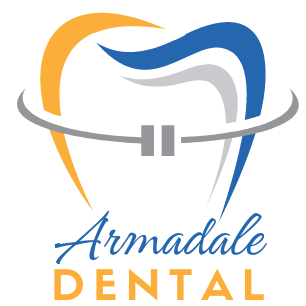Gum disease, also known as periodontal disease, is a common yet serious oral health issue that affects many people. If left untreated, it can lead to tooth loss and other health complications. Fortunately, there are effective treatments available to restore gum health and prevent further damage. If you’re looking for gum disease treatment in Markham, this guide will provide insights into its causes, symptoms, treatment options, and how to find the right dental care.
Understanding Gum Disease
Gum disease is an infection of the gums caused by bacteria found in plaque, a sticky film that forms on teeth. When plaque is not removed through proper oral hygiene, it hardens into tartar, leading to inflammation and infection of the gums.
Stages of Gum Disease
- Gingivitis – The earliest stage of gum disease, characterized by red, swollen gums that bleed easily. At this stage, it is reversible with proper oral care and professional cleaning.
- Periodontitis – If left untreated, gingivitis can progress to periodontitis, where the gums start pulling away from the teeth, creating pockets that become infected. Bone loss may occur, making teeth loose.
- Advanced Periodontitis – In this severe stage, significant gum recession and bone loss lead to tooth mobility and potential tooth loss. More intensive treatments are needed to manage the condition.
Symptoms of Gum Disease
Recognizing the early signs of gum disease is crucial for timely treatment. Common symptoms include:
- Bleeding gums during brushing or flossing
- Red, swollen, or tender gums
- Persistent bad breath
- Receding gums, making teeth appear longer
- Loose or shifting teeth
- Pus between gums and teeth
- Pain or discomfort while chewing
If you experience any of these symptoms, it’s essential to seek professional dental care in Markham to prevent further complications.
Treatment Options for Gum Disease
The type of gum disease treatment depends on the severity of the condition. Here are some of the most common treatment methods:
1. Professional Dental Cleaning
Regular professional cleanings remove plaque and tartar buildup, preventing gum disease from developing or worsening. This is an essential part of maintaining good oral health.
2. Scaling and Root Planing
For individuals with early-stage gum disease, a deep cleaning procedure called scaling and root planing is performed. This involves removing plaque and tartar from below the gumline and smoothing the tooth roots to prevent bacteria buildup.
3. Antibiotic Therapy
In some cases, dentists may recommend antibiotics to reduce bacterial infection and inflammation in the gums. These may be in the form of mouth rinses, gels, or oral medications.
4. Laser Therapy
Laser treatment is a minimally invasive procedure used to remove infected gum tissue and bacteria while promoting faster healing. This method is often preferred for its precision and reduced discomfort.
5. Gum Surgery
For advanced gum disease, surgical procedures such as flap surgery or gum grafting may be necessary. These procedures help restore damaged tissue and improve gum health.
Preventing Gum Disease
Prevention is always better than treatment. Here are some key steps to maintain healthy gums:
- Brush your teeth twice daily with fluoride toothpaste
- Floss daily to remove plaque from between the teeth and along the gumline
- Use an antimicrobial mouthwash to reduce bacteria
- Eat a balanced diet rich in vitamins and minerals to support gum health
- Avoid smoking and tobacco products, as they increase the risk of gum disease
- Visit your dentist regularly for check-ups and professional cleanings
Armadale Dental Clinic: Markham’s Top Choice for Emergency Dental Care
For those in Markham, Armadale Dental Clinic is one of the best options for emergency dental care. Located at 7720 Markham Road, Unit A4, Markham, ON L3S 3K1, Armadale Dental Clinic is known for its quick response and expert care in handling all types of dental emergencies. Whether you’re dealing with an unexpected dental issue or a recurring problem that needs urgent attention, the experienced team at Armadale Dental Clinic is here to help.
Contact Armadale Dental Clinic at +1-647-695-1779 or via email at info@armadaledental.ca to receive the emergency dental care you need. Their team is dedicated to providing immediate, high-quality treatment to alleviate pain and restore your oral health.
Common Questions About Gum Disease Treatment
1. Can gum disease be reversed?
Gingivitis, the early stage of gum disease, can be reversed with good oral hygiene and professional cleanings. However, once it progresses to periodontitis, it requires more intensive treatments to manage but cannot be fully reversed.
2. How long does gum disease treatment take?
The duration of treatment depends on the severity of the condition. Mild cases may improve within weeks with proper care, while more advanced cases may require several months of treatment and ongoing maintenance.
3. Does gum disease treatment hurt?
Most gum disease treatments, such as scaling and root planing, may cause mild discomfort, but dentists use numbing agents to minimize pain. Advanced treatments like laser therapy and surgery may have a longer recovery period but are typically well-managed with medication.
4. Can gum disease cause other health problems?
Yes, untreated gum disease has been linked to serious health conditions, including heart disease, diabetes, and respiratory infections. Maintaining good oral health can contribute to overall well-being.
5. What happens if gum disease is left untreated?
If gum disease is not treated, it can lead to severe gum recession, bone loss, loose teeth, and eventual tooth loss. In advanced cases, it may require extensive surgical intervention.
Conclusion
Gum disease is a serious but preventable condition that requires prompt attention. Whether you’re experiencing early symptoms or need advanced periodontal care, seeking treatment from a qualified dentist in Markham is essential. By maintaining good oral hygiene, scheduling regular dental check-ups, and addressing gum issues early, you can protect your smile and overall health for years to come.
